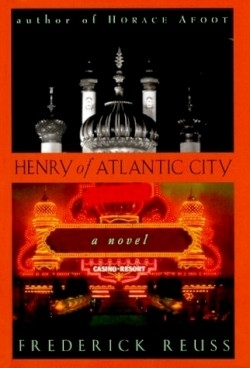Henry of Atlantic City
The children of the heavenly man are more numerous than those of the earthly man. He who understands, let him understand. No creation is so completely flawed that no good can come out of it. Know yourself by not being taken captive by a sweetness of darkness.
These are the thoughts and words of Henry, a six-year-old with a photographic memory. Driven by unknown inner forces and a harsh environment, Henry is a present day kid reared in a world of gamblers, prostitutes and losers. Satirically biting and often justifiably irreverent, Reuss (Horace Afoot) allows his gifted child hero to escape into ancient Byzantium through several volumes of books Henry finds by Procopius, such as The Secret History.
It is from Procopius and from The Coptic Gnostic Library that Henry can make sense of Atlantic City. Through constant conversational inquiry with the underworld characters that have raised him, Henry blends the Roman era with that of today, and Mafia dealings between Henry’s father and local goodfellas take on great mythical and historical connotations.
Yet Reuss is clever and appreciates a challenge. The charming, yet vulnerable and abandoned Henry is placed into the greedy hands of the Catholic Church when his father has to skip town due to a major theft of mob funds. The author, while hilariously tipping his hat to F. Scott Fitzgerald, Mark Twain and a lot of dead rock stars, offers this—that philosophy, be it dogmatic or not, and inquiry are in their purest form when employed by a child, as they are not tainted by guilt or mutated from age.
A desperate Henry throws himself into the world where he can walk as “a saint.” He knows well the dangers of being a saint and of becoming lost to the degradations humanity so pleasingly presents to itself. Henry escapes again (we are initially led to believe) to schizophrenia when an angel begins visiting him, in his ear, when he is most afraid.
Henry of Atlantic City (think Joan of Arc) truly understands the darkness that threatens the honest or holy man, but, refreshingly, avoids martyrdom—a concept in present day enlightenment that rings more true than any word of God’s chosen.
Reviewed by
Brandon M. Stickney
Disclosure: This article is not an endorsement, but a review. The publisher of this book provided free copies of the book to have their book reviewed by a professional reviewer. No fee was paid by the publisher for this review. Foreword Reviews only recommends books that we love. Foreword Magazine, Inc. is disclosing this in accordance with the Federal Trade Commission’s 16 CFR, Part 255.


